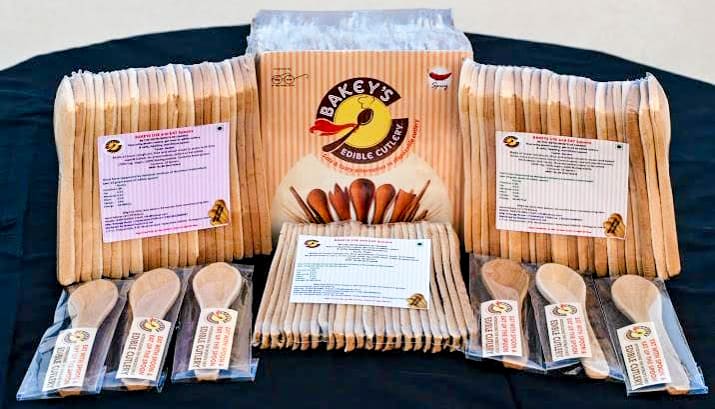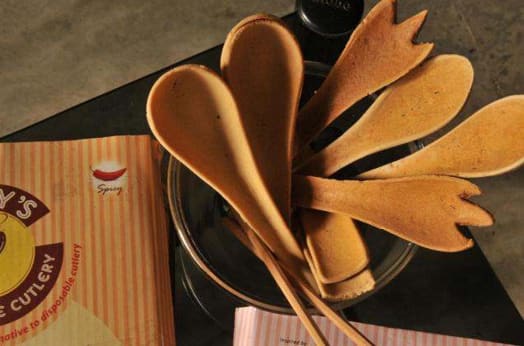 Credit:
Bakey's
Credit:
Bakey's
Products are chosen independently by our editors. Purchases made through our links may earn us a commission.
The toll our throwaway culture takes on the environment can be harsh and unrelenting.
Consider plastic utensils, dished out with almost every order of takeout, cafeteria, and cookout food we consume. Not only is most plasticware never recycled, but most of it can’t be recycled. That means it heads straight to the landfill, where it can look forward to a long and unhealthy life releasing toxic chemicals into the environment.
In the U.S., 40 billion pieces of plastic cutlery are used annually. The majority are only used once and then discarded. That’s a lot of landfill.
Enter Bakeys, an environmentally friendly alternative from India. If company founder Narayana Peesapaty has his way, his edible, compostable cutlery may soon accompany your takeout orders.
{{amazon name="Totally Bamboo 3-Piece Set Bamboo Flatware (Fork, Knife, and Spoon)", asin="B001V7RBYE", align="right"}} Beginning in 2008, Peesapaty sought a way to replace the estimated 120 billion pieces of disposable plastic cutlery thrown away in India each year. Eventually, he developed a mix of millet, rice, and wheat that can be combined to form sturdy cutlery. Bakeys are said to work just fine with hot food, and the utensils don't get soggy, even in water.
Not only will the cutlery decompose naturally within four to five days, but it’s edible and even nutritious. The utensils are even offered in sweet, savory, or plain flavors. Spoons are sturdy enough to get through a serving of hot soup without coming apart. Who needs Saltines?
Though the current generation of Bakeys aren't gluten free, Peesapaty says he's working on a version without wheat. Still, certifications include vegan, preservative-free, trans fat–free, dairy-free, and fair trade. (The manufacturing unit is even an all-female enterprise.)
One of the biggest obstacles Peesapaty is confronting is cost. Plastic cutlery is ubiquitous largely because it's cheap to produce. Currently, Bakeys retail online for $4 for 100—more expensive than plastic.

“Plastic is very cheap, true,” says Peesapaty. “But I can make it as cheap with volumes. And once I get the volumes I get out to the farmers and start procuring raw materials [...] in which case my spoons will be as cheap as the plastic spoons.”
The company currently sells 1.5 million spoons annually in India, but in order to ramp up manufacturing and increase sales, Bakeys needs to lower its prices and fully automate the production. That's why the company is running a Kickstarter campaign with the goal of building a facility that can produce 800,000 utensils per day. With 19 days to go, the campagin has already smashed its $20,000 goal, taking in nearly $89,000 from almost 3,000 individual backers.
Related Video
{{brightcove '4744713543001'}}


